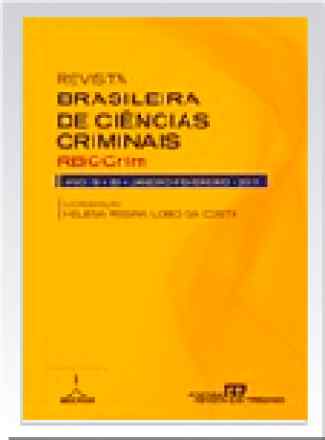DIMENSÕES DO (BIO)PODER E DISCURSO CRIMINOLÓGICO CRÍTICO: NECROPOLÍTICA E PRECARIZAÇÃO NA CONSTRUÇÃO CATEGÓRICA DA VULNERABILIDADE
Revista Brasileira de Ciências Criminais
DIMENSÕES DO (BIO)PODER E DISCURSO CRIMINOLÓGICO CRÍTICO: NECROPOLÍTICA E PRECARIZAÇÃO NA CONSTRUÇÃO CATEGÓRICA DA VULNERABILIDADE
Autor Correspondente: Gabriel Antinolfi Divan | [email protected]
Palavras-chave: Criminologia crítica – Vulnerabilidade – Necropolítica – Precariedade – Branquidade.
Resumos Cadastrados
Resumo Português:
O presente trabalho procura determinar elementos teórico-políticos para a construção de uma agenda a respeito da vulnerabilidade (conceito essencial na crítica criminológica do direito penal) e para uma nova visão de seus elementos fundantes. O artigo opera com a hipótese de que uma necessária atualização do conceito se dá na esfera biopolítica, para além de uma linearidade exclusivamente pautada pela problematização a partir da discussão classista usual. A pergunta a que pretende responder é: quais são os elementos fundantes do conceito de vulnerabilidade, a partir de uma crítica do direito penal ? Para responder a essa pergunta, o texto trabalha com uma composição de vulnerabilidade que preenche a noção a partir de uma análise baseada na necropolítica e na precariedade. Por fim, focaliza a questão do silenciamento racial das ciências criminais não como resultado conjuntural, mas no próprio núcleo de análise que reúne esses dois componentes, irradiando seus efeitos para uma contração tanto da importância teórica do fator quanto para a própria negação da branquidade como locus discursivo, e as circunstâncias punitivas e seletivas resultantes deste silenciamento. O artigo adota o método hipotético-dedutivo e, por meio de revisão bibliográfica, procura apontar alguns achados sobre as correlações entre os conceitos e espectros ora abordados, bem como fundamentar aportes conclusivos que enunciam novas possibilidades de pesquisa.
Resumo Inglês:
This paper aims to determine theoretical and political elements for the construction of an agenda regarding vulnerability (an essential concept in the criminological critique of criminal law), and for a new view of its founding elements. It operates with the hypothesis that a necessary and updated fulfillment of the concept occurs in the biopolitical sphere, opposing a linear view exclusively guided by the problematization from the usual class discussion. The question that the article intends to answer is: what are the founding concepts of vulnerability, from a critics of the Criminal Law? It works with a composition of vulnerability that fills the notion from an analysis based on necropolitics and precariousness – particularly worked on in the relevant literature. Finally, it focuses on the issue of racial silencing in the criminal sciences, not as an conjunctural aftermath, but the very core of analysis that brings these two components together, radiating their effects towards a contraction both in the theoretical importance of the factor and in the very negation of a whiteness as a discursive locus, and the punitive and selective circumstances that arise from it. It adopts the hypothetical-deductive method and, by means of bibliographic review, seeks to point out some findings on correlations between the concepts and spectra now discussed, as well as to support conclusive contributions that enunciate new research possibilities.

